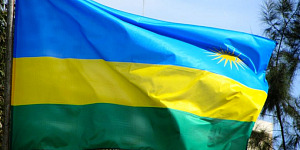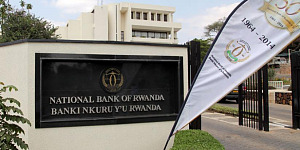Fitch Ratings has affirmed Rwanda's Long-term foreign and local currency Issuer Default Ratings (IDR) at 'B+' with Stable Outlooks. The issue ratings on Rwanda's senior unsecured foreign currency bonds have also been affirmed at 'B+.' The Country Ceiling has been affirmed at 'B+' and the Short-term foreign currency IDR at 'B'.
KEY RATING DRIVERS
The 'B+' IDR and Stable Outlook reflect the following key ratings drivers:
Rwanda has had some success in rationalising expenditure and has implemented policies with the potential to increase domestic revenues. Fitch expects an overall budget deficit of 4.5% of GDP for the 2016 fiscal year (FY16, which runs from July 2015 to June 2016), slightly lower than the amount programmed in the budget. Fitch also expects the deficit to narrow further in FY17. Rwanda's fiscal performance has largely been a function of stabilised current expenditure and falling capital expenditure.
Supported by an IMF Policy Support Instrument, the Rwandan government has adopted a policy framework focused on increasing domestic revenue mobilisation to facilitate a shift in external donor flows from grants to loans. Rwanda's public debt metrics are better than similarly rated peers, but the country is highly dependent on donor flows and concessionary loans. Over the five years from FY11 to FY15, Rwanda received grants averaging about 40% of total revenue per year. In FY15, this fell to 30% and it will continue to fall to below 20% in FY18. The country's ability to successfully negotiate this change will be dependent upon the government's ability to continue making progress on structural reforms. In particular, planned changes to the agricultural and mining tax regimes could boost domestic revenues.
Rwanda's strong growth and low inflation are key rating strengths and Fitch expects the country to continue growing at approximately 7% year-on-year through 2017. The expected 2016 growth rate of 6.3% is well above the median forecast of 4.5% for 'B' rated sovereigns. Low international mineral prices led to a contraction in the mining sector in 2015, which acted as a drag on the industrial sector's overall performance. However, continued growth in private consumption along with a rebound in the export sector will be the major drivers of growth in 2016. Despite some seasonal fluctuations, inflation remained below 5% in 2015. Fitch expects an increase in inflation in 2016 due to increases in food and fuel prices.
The current account deficit rose to an estimated 13.6% of GDP in 2015 from 8% of GDP in 2013, partly reflecting a decline in exports. Export growth will rebound in 2016, but largely due to base effects. Exports as a percentage of GDP are likely to be lower in 2016. Lower export earnings will be mitigated by the lower price of energy imports, but Fitch expects the current account deficit to widen to over 14% of GDP in 2016. Further, falling external receipts have led to a drawdown in the official reserves position.
Rwanda's strong performance on governance indicators relative to peers provides additional support to the ratings, as well as being a key to maintaining donor support. In December, President Paul Kagame announced his decision to run for a third term following a referendum in which 98% of voters approved changes to the constitution that clear the way for Kagame to serve theoretically until 2034. Kagame's announcement has brought widespread criticism and could represent an issue between Rwanda and its multilateral and bilateral donors. A sharp reduction in donor flows would significantly negatively alter Rwanda's credit profile, as would weaker performance on governance indicators. Fitch expects Rwanda to come to an agreement with its donors and notes that most 2016 donor flows have already been programmed and are likely to be disbursed as expected.
RATING SENSITIVITIES
The Stable Outlook reflects Fitch's assessment that upside and downside risks to the rating are currently balanced. The main risk factors that, individually or collectively, could trigger positive rating action are:
- Continued strong GDP growth supporting income convergence towards 'B' peers.
- Continued improvement on fiscal reforms, such as efforts to widen the tax base and increase financial flexibility.
- A narrowing of the current account deficit over time, supported, for example, by export growth and greater regional integration.
The main risk factors that, individually or collectively, could trigger a negative rating action are:
- A material threat to political stability.
- A sharper-than-expected contraction in donor aid, which would weaken the fiscal and external positions.
- Failure to attract long-term capital inflows to offset a wide current-account balance, leading to a marked weakening of foreign reserve coverage.
KEY ASSUMPTIONS
Fitch assumes that broad social and political stability will prevail around the 2017 elections.
Fitch assumes Rwanda will continue to implement structural reforms and prudent economic policies with support of the IMF.





































